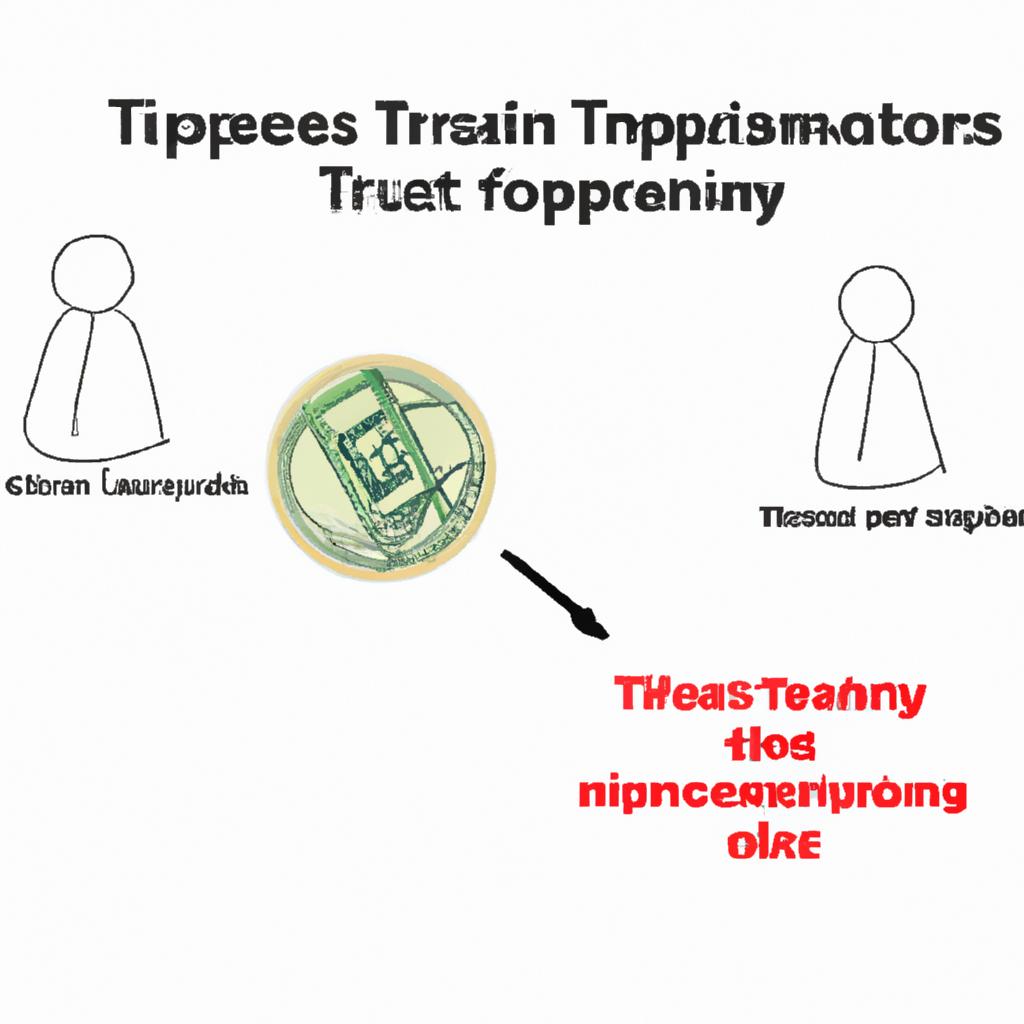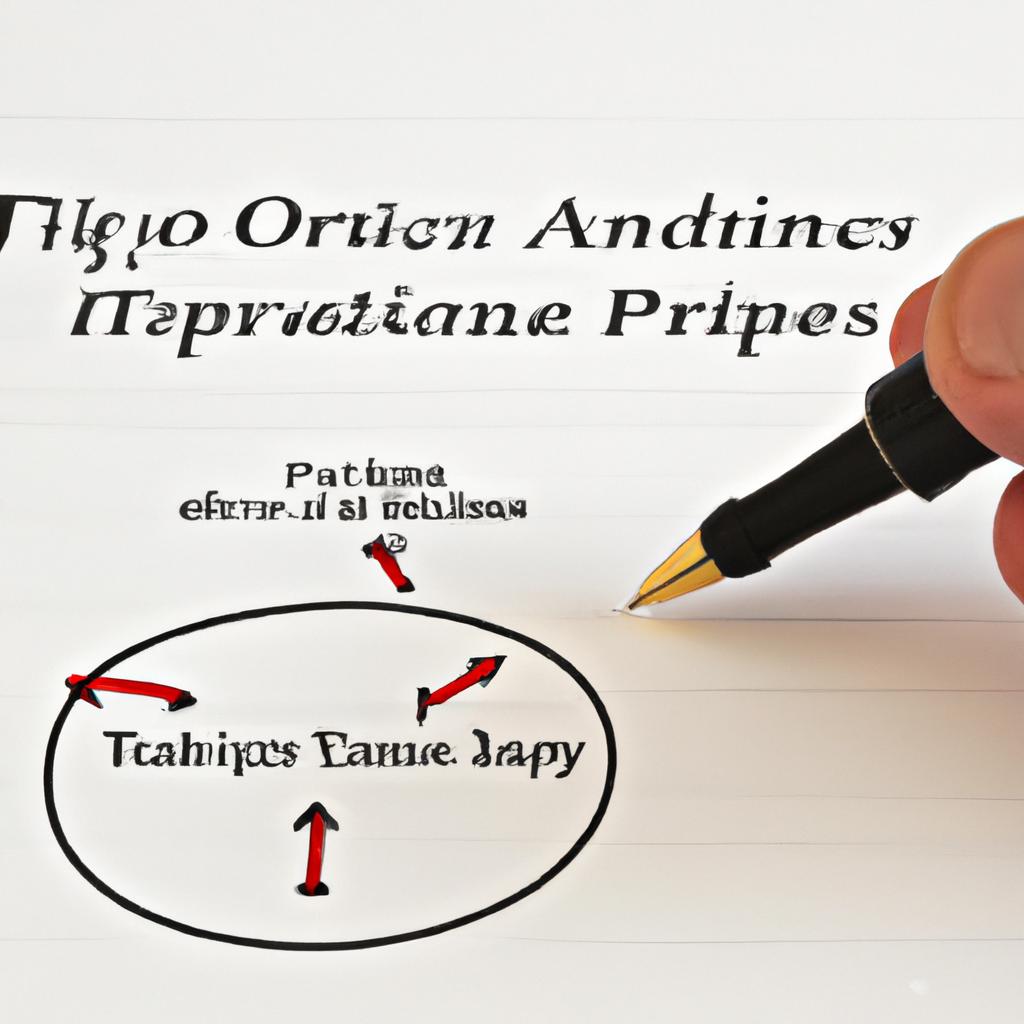In the intricate realm of estate planning, few tools match the precision and flexibility of the qualified terminable interest property (QTIP) trust. Particularly intriguing is the strategic utilization of income distributions from such trusts, offering a wealth of possibilities for structuring one’s financial legacy. As seasoned practitioners in the field of trusts and estates, Morgan Legal Group in New York City stands ready to unravel the complexities of QTIP trust income distributions for our esteemed clients. Join us as we explore the nuances of this sophisticated estate planning technique, and discover the tailored solutions our team can craft to safeguard and optimize your assets for future generations.
Understanding QTIP Trust Income Distributions
When it comes to QTIP Trust Income Distributions, it is crucial to understand the complexities involved in this type of trust. A QTIP trust, also known as a Qualified Terminable Interest Property trust, is commonly used in estate planning to provide for a surviving spouse while also ensuring that assets are ultimately passed down to other beneficiaries.
- Income distributions from a QTIP trust are typically made to the surviving spouse during their lifetime.
- These distributions are often determined by the terms set forth in the trust agreement and must comply with relevant tax laws.
| Income Distribution | Relevant Information |
|---|---|
| Monthly Distribution | Income can be distributed on a monthly basis to the surviving spouse. |
| Annual Distribution | Income can also be distributed annually, depending on the trust terms. |
It is essential to work with a knowledgeable estate planning attorney to ensure that income distributions from a QTIP trust are handled correctly and in compliance with all legal requirements. By understanding the intricacies of QTIP trust income distributions, you can effectively plan for the financial security of your loved ones and protect your assets for future generations.

Maximizing Income Distributions for Beneficiaries
In a QTIP trust, income distributions play a crucial role in maximizing benefits for beneficiaries. By carefully strategizing these distributions, individuals can ensure that their loved ones receive the most advantages from the trust assets. One key consideration is to establish a clear plan for how income will be distributed, taking into account factors such as tax implications and the financial needs of the beneficiaries.
<p>When structuring income distributions in a QTIP trust, it's important to consider the following:</p>
<ul>
<li><strong>Beneficiary Needs:</strong> Assess the financial requirements of each beneficiary to determine the most appropriate income distribution strategy.</li>
<li><strong>Tax Efficiency:</strong> Strategize income distributions to minimize tax liabilities for both the trust and the beneficiaries.</li>
<li><strong>Asset Growth:</strong> Ensure that income distributions support the growth of trust assets over time to provide long-term benefits for beneficiaries.</li>
</ul>

Navigating Tax Implications of QTIP Trust Income Distributions
When it comes to QTIP trust income distributions, it is essential to understand the tax implications that may arise. These distributions can have significant impacts on both the trust itself and the beneficiaries receiving the income. Proper navigation of these tax implications is crucial to ensure compliance with the Internal Revenue Service regulations and to maximize tax efficiency.
One important consideration is the treatment of income distributions from a QTIP trust. These distributions are typically taxable to the beneficiary receiving them and must be reported on their individual tax return. It is important to keep detailed records of these distributions and work with a tax professional to ensure accurate reporting and compliance with IRS guidelines. Additionally, understanding the potential estate tax consequences of these distributions is crucial for effective estate planning. Consulting with an experienced estate planning attorney can help you navigate these complexities and ensure that your QTIP trust income distributions are structured in a tax-efficient manner.

Strategic Approaches to Structuring QTIP Trust Income Distributions
When structuring QTIP trust income distributions, it is important to consider various strategic approaches to ensure that the trust functions effectively according to the grantor’s wishes. One approach is to establish a clear distribution schedule outlining when and how income will be distributed to the beneficiary. This schedule can help provide stability and predictability for the beneficiary, as well as ensure that the trust assets are utilized in a responsible manner.
Another strategic approach is to incorporate flexibility into the trust document, allowing the trustee to adjust income distributions based on changing circumstances or the needs of the beneficiary. By including provisions that permit the trustee to distribute income as needed, the trust can adapt to unforeseen events while still maintaining the overall goals and objectives of the trust. Additionally, considering the tax implications of income distributions and taking advantage of available tax planning strategies can help maximize the benefits of the trust for both the beneficiary and the grantor.
Q&A
Q: What is a QTIP trust?
A: A QTIP trust, or “qualified terminable interest property trust,” allows a surviving spouse to receive income from the trust during their lifetime while preserving the assets for the beneficiaries named after the spouse’s death.
Q: How are income distributions from a QTIP trust handled?
A: Income distributions from a QTIP trust are typically made to the surviving spouse on a regular basis, ensuring their financial security while maintaining control over the trust assets.
Q: Can income distributions from a QTIP trust be customized?
A: Yes, income distributions from a QTIP trust can be customized to meet the specific needs and preferences of the surviving spouse, providing flexibility and support as circumstances change over time.
Q: What are the tax implications of income distributions from a QTIP trust?
A: Income distributions from a QTIP trust are subject to income tax, but they may also have estate tax implications depending on the total value of the trust assets and the specific terms of the trust agreement.
Q: How can a QTIP trust be used as part of an estate plan?
A: A QTIP trust can be a valuable tool in estate planning, allowing individuals to provide for their surviving spouse while also ensuring that their assets are preserved and distributed according to their wishes after their spouse’s passing.
In Summary
In conclusion, QTIP trust income distributions provide a flexible and beneficial option for managing assets and protecting beneficiaries. By understanding the intricacies of these distributions, you can ensure that your loved ones are well taken care of in the future. Remember to consult with a financial advisor or estate planning attorney to determine the best strategy for your unique situation. With the right planning, you can create a legacy that lasts for generations to come. Thank you for reading!
 Understanding QTIP Trust Income Distributions and Their Benefits
Understanding QTIP Trust Income Distributions and Their Benefits
When it comes to estate planning, there are many different tools and strategies available to help individuals safeguard their assets and ensure their loved ones are provided for. One of these tools is the QTIP trust, which stands for Qualified Terminable Interest Property trust. This type of trust allows individuals to provide for their surviving spouse while still maintaining control over the distribution of assets after the spouse’s passing.
In this article, we will take a closer look at QTIP trust income distributions, how they work, and their potential benefits for individuals looking to protect their assets and provide for their loved ones.
What is a QTIP Trust?
A QTIP trust is a legal entity that allows individuals to provide for a surviving spouse while still maintaining some control over how assets are distributed after the spouse’s death. In this type of trust, the spouse is entitled to receive income distributions from the trust during their lifetime, and upon their passing, the remaining assets are then distributed according to the trust’s terms.
How Does a QTIP Trust Work?
A QTIP trust is typically established through a written document, commonly referred to as the trust deed. This document outlines the terms and conditions of the trust, including how income distributions will be made and how the remaining assets will be distributed upon the surviving spouse’s death.
The assets placed into the trust can include cash, securities, real estate, and other valuable assets. The trust’s creator, known as the grantor, can control how these assets are invested and managed, as well as designate a trustee to ensure the trust’s terms are followed.
Income Distributions from a QTIP trust
One of the essential features of a QTIP trust is the ability to provide for a surviving spouse through income distributions. These distributions can be made from income-generating assets within the trust, such as interest, dividends, or rental income.
The trust’s terms can specify how often the distributions are made, such as monthly, quarterly, or annually, and in what amount. Additionally, the surviving spouse can also be given the power to request lump-sum distributions if needed.
Benefits of QTIP Trust Income Distributions
QTIP trusts offer several benefits for individuals looking to provide for their surviving spouse while still maintaining some control over their assets.
1. Control over Asset Distribution: A QTIP trust allows the grantor to have control over the ultimate distribution of the trust’s assets. This can be especially beneficial in cases where the surviving spouse may have children from a previous marriage, and the grantor wants to ensure their assets are ultimately passed down to their own children.
2. Protection from Creditors: Assets placed in a QTIP trust are typically protected from creditors, including lawsuits and bankruptcy. This can provide an added layer of protection for the surviving spouse and the trust’s beneficiaries.
3. Estate Tax Benefits: Placing assets into a QTIP trust can also provide estate tax benefits. Since the assets are held within the trust, they are not considered part of the surviving spouse’s estate and therefore not subject to estate taxes. Instead, they are taxed when distributed to the trust’s beneficiaries.
Practical Tips for Establishing a QTIP Trust
If you are considering establishing a QTIP trust, here are some practical tips to keep in mind:
– Work with an Experienced Estate Planning Attorney: QTIP trusts are complex legal entities that require careful planning and drafting. It is crucial to work with an experienced estate planning attorney who can guide you through the process and ensure your trust’s terms align with your overall estate planning goals.
– Consider the Surviving Spouse’s Needs: When designing the trust’s terms, it is essential to consider the surviving spouse’s needs and lifestyle. This can help determine the amount and frequency of income distributions and ensure the trust can provide for them comfortably.
– Regularly Review and Update the Trust: It is essential to regularly review and update the trust’s terms to reflect any life changes, such as getting remarried or having children. This can help ensure the trust continues to align with your wishes and current circumstances.
Case Study: Establishing a QTIP Trust
Let’s take a look at a real-life example of how a QTIP trust can be beneficial for individuals looking to provide for their surviving spouse and control how their assets are distributed.
Sarah and John have been married for over 20 years, and they have two children from John’s previous marriage. Sarah wants to ensure that upon her passing, her assets are ultimately passed down to her children, and she also wants to provide for John during his lifetime.
To achieve this, Sarah establishes a QTIP trust and places her assets into the trust. She designates her children as the ultimate beneficiaries of the trust, with John receiving income distributions from the trust’s income-generating assets during his lifetime.
Upon John’s passing, the remaining assets in the trust are then distributed to Sarah’s children, and she can rest assured that her wishes are being fulfilled even after she is gone.
First-Hand Experience: Is a QTIP Trust Right for You?
While QTIP trusts offer many benefits, they may not be suitable for everyone. It is crucial to carefully consider your unique circumstances and consult with a trusted advisor to determine if a QTIP trust aligns with your estate planning goals.
In Conclusion
QTIP trust income distributions allow individuals to provide for their surviving spouse while still maintaining control over how their assets are distributed after their spouse’s passing. They offer various benefits, including control over asset distribution, protection from creditors, and potential estate tax benefits.
If you are considering establishing a QTIP trust, it is crucial to consult with an experienced estate planning attorney and regularly review and update the trust’s terms to ensure it aligns with your wishes and current circumstances.

